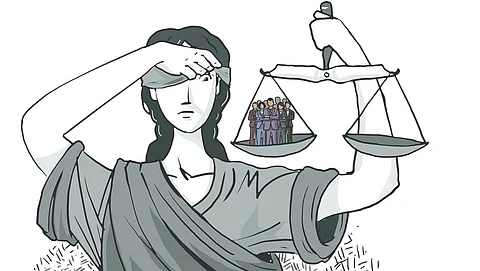

It is an advisory that has implications of an abiding conviction. On July 23, the International Court of Justice (ICJ), the principal judicial organ of the UN, passed an “advisory opinion” stating that government actions driving climate change are illegal and that countries should be held legally responsible for their emissions.
“The climate change treaties set forth binding obligations for States parties to ensure the protection of the climate system and other parts of the environment from anthropogenic greenhouse gas emissions,” the world court said, because climate change “imperils all forms of life”. Dire Tladi, one of the court’s 15 judges, said it was one of the most consequential matters ever brought before ICJ. “It is an existential crisis that potentially threatens the future of humanity,” Tladi said.
The first-ever ruling of ICJ on climate change traces its origin to a classroom discussion among 27 law students at the University of the South Pacific’s campus in Port Vila, the capital of Vanuatu, one of the world’s most climate vulnerable countries. In 2019, the students, grouped as the Pacific Island Students Fighting Climate Change, launched a campaign called “#ClimateICJAO”. The campaign seeks climate justice as “for too long, those most responsible for the climate crisis have ignored their obligations”.
The group seeking climate justice lobbied with Pacific countries. Ultimately, Ralph Regenvanu, Vanuatu’s minister for climate change, declared the country’s support. Vanuatu campaigned alongside youth groups from across the world. In 2023, it reached a milestone: 123 countries agreed to co-sponsor a resolution in the UN General Assembly to “request for an advisory opinion of the ICJ on the obligations of states in respect of climate change”. That year, on April 12, the UN Assembly resolution sought advisory opinion from ICJ on two questions: what obligations do states have to tackle climate change under international law; and what are the legal consequences if they fail to do so?
This is only the fifth time in its nearly 80-year history that the world court has given such an advisory opinion. “The world’s smallest countries have made history,” says Vishal Prasad, one of the campaigning students. “The ICJ’s decision brings us closer to a world where governments can no longer turn a blind eye to their legal responsibilities.”
According to ICJ’s advisory opinion, the obligations of countries include …
This article was originally published in the August 16-31, 2025 print edition of Down To Earth